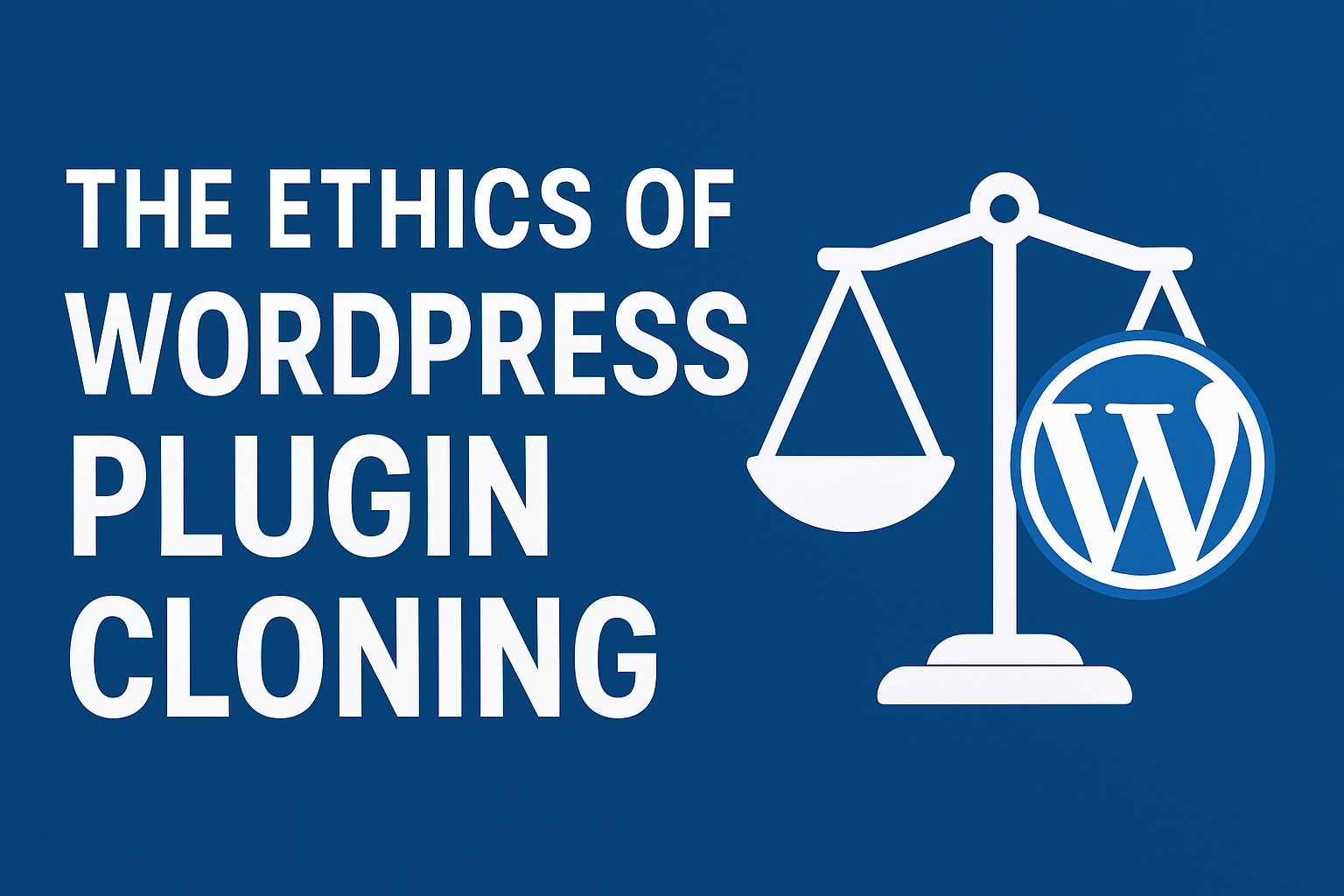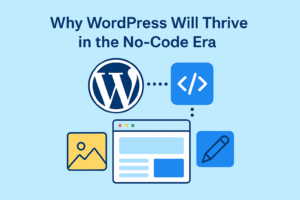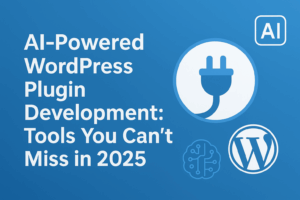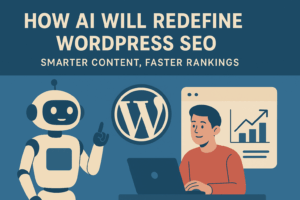The Ethics of WordPress Plugin Cloning: What the GPL Really Allows
Introduction
In the open-source world, the GNU General Public License (GPL) powers WordPress and every plugin in its ecosystem. The GPL ensures freedom — to use, study, modify, and redistribute code. But what happens when that freedom is used to clone someone else’s plugin? Is it legal? Ethical? Or both?
This article dives deep into what the GPL actually allows, the difference between legal rights and ethical responsibilities, and how WordPress developers can build thriving businesses without crossing ethical lines.
⚖️ Understanding the GPL in Plain Terms
The GPL is not a commercial license — it’s a freedom license. Its core principles are:
- You can use the software for any purpose.
- You can study how it works and modify it.
- You can redistribute copies.
- You can distribute modified versions under the same GPL license.
This means you can legally clone, fork, or redistribute any GPL-licensed WordPress plugin — including premium ones — as long as your version also remains GPL-compliant.
In other words: yes, cloning a plugin is legal under GPL. But legality isn’t the same as ethics.
🧩 Cloning vs Forking: Know the Difference
- Cloning — Copying another plugin’s code and redistributing it with minimal or no change. Often done to profit from someone else’s work.
- Forking — Copying the codebase but evolving it in a new direction, adding features, fixing issues, and contributing something new to the community.
Both are legal under the GPL. But only one of them is ethical.
💡 Real Example: WooCommerce and Its Forks
WooCommerce (by Automattic) is GPL-licensed. Over the years, several forks appeared, adding new features or focusing on niche markets (e.g., SaaS billing, digital goods). These forks were legal — and often even welcomed — because they contributed to innovation within the ecosystem.
However, straight-up clones that only changed branding or monetized the same features under a new name drew criticism and community backlash.
🚫 When Cloning Crosses the Line
Even though GPL permits copying, developers and the WordPress community expect ethical boundaries. Cloning becomes unethical when:
- You rebrand another plugin with little or no modification.
- You remove attribution, author names, or original credits.
- You resell the code without providing value (support, updates, docs).
- You mislead users into believing it’s your original work.
These actions erode trust and harm the open-source spirit — even if they’re technically legal.
💬 What the WordPress Community Says
WordPress co-founder Matt Mullenweg has consistently stated that the GPL gives you the right to reuse code — but it’s on developers to uphold community values of respect, contribution, and innovation.
In forums and developer groups, most agree: if you copy, credit. And if you fork, improve.
📜 Best Practices for Ethical Forking
Here’s how to innovate ethically under GPL:
- Credit the original author in your readme and code headers.
- Document your changes clearly — list what’s new or improved.
- Contribute upstream — if your fork fixes bugs or adds features, share them back.
- Offer unique value — support, UI improvements, integrations, performance, or documentation.
- Respect trademarks — you can’t use the same name or logo (that’s separate from GPL).
🧠 The Business Side: Competing with Clones
If your plugin is being cloned, don’t panic. The GPL makes this possible — so focus on what can’t be cloned:
- Brand trust — users prefer known, supported products.
- Support & documentation — most clones don’t offer these.
- Community — loyal users, tutorials, Slack/Discord channels.
- Regular updates — security patches and new features.
- Integrations — SaaS connections, APIs, and dashboards.
Successful plugin companies like Gravity Forms, WP Rocket, and Yoast thrive not because of code secrecy, but because of service, polish, and trust.
🧩 Legal vs Ethical Summary
| Action | Legal? | Ethical? |
|---|---|---|
| Fork and add new features | ✅ Yes | ✅ Yes |
| Rebrand without change | ✅ Yes | ❌ No |
| Remove author credits | ✅ Yes | ❌ No |
| Sell GPL code + add premium support | ✅ Yes | ✅ Yes |
| Mislead users about authorship | ❌ Potential trademark issue | ❌ No |
🧭 Conclusion
The GPL is designed to protect freedom — not free-riding. As a WordPress developer, your reputation, creativity, and ethics are your strongest assets. Use the GPL as a foundation for innovation, not imitation.
Clone if you must — but fork to improve, share, and contribute. That’s the WordPress way.
Related reads on Plugintify:
- From Plugin to SaaS: How to Turn Your WordPress Plugin into a Cloud App
- WordPress + WebAssembly: The Future of Plugin Performance
- How to Build a WordPress Plugin Marketplace (Step-by-Step)
Published by Plugintify — The Hub for WordPress Plugin Developers.




